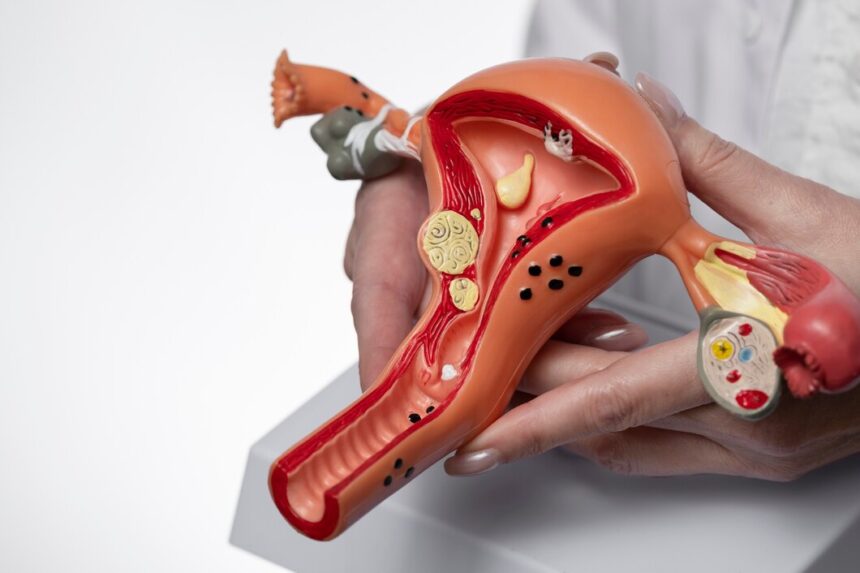Endometriosis is a chronic and often painful condition where tissue similar to the lining of the uterus, known as the endometrium, grows outside the uterus. This condition affects millions of women worldwide and can lead to various complications, including infertility. Recognizing the early signs and symptoms of endometriosis is crucial for timely diagnosis and management.
What is Endometriosis?
Endometriosis occurs when endometrial-like tissue grows on the ovaries, fallopian tubes, outer surfaces of the uterus, and other organs in the pelvis. This tissue responds to hormonal changes during the menstrual cycle, leading to inflammation, scarring, and adhesions. While the exact cause of endometriosis is still unknown, factors such as genetics, immune system disorders, and hormonal imbalances may contribute to its development.
Early Signs and Symptoms
- Pelvic Pain: One of the most common symptoms of endometriosis is chronic pelvic pain, which often occurs during menstruation (dysmenorrhea). This pain can be severe and may persist beyond the menstrual cycle.
- Menstrual Irregularities: Women with endometriosis may experience heavy menstrual bleeding (menorrhagia) or bleeding between periods (intermenstrual bleeding). These irregularities can be a significant indicator of the condition.
- Painful Intercourse: Pain during or after sexual intercourse (dyspareunia) is another common symptom. This discomfort can vary in intensity and may be felt in the lower abdomen or pelvic region.
- Gastrointestinal Issues: Endometriosis can also affect the digestive system, leading to symptoms such as bloating, constipation, diarrhea, and nausea, particularly during menstrual periods. These symptoms may be mistaken for irritable bowel syndrome (IBS).
- Urinary Symptoms: Some women may experience pain while urinating or have increased frequency or urgency, especially during menstruation. This may indicate that endometrial tissue is affecting the bladder.
- Fatigue: Chronic fatigue is common among women with endometriosis. This fatigue can be a result of pain, hormonal imbalances, or the body’s inflammatory response to the condition.
- Infertility: Endometriosis is often diagnosed in women who are experiencing infertility. The condition can cause adhesions and scar tissue, affecting the ovaries, fallopian tubes, and the uterus, making conception difficult.
- Other Symptoms: Additional symptoms may include lower back pain, leg pain, and even depression or anxiety due to the chronic pain and challenges associated with the condition.
When to Seek Medical Attention
If a woman experiences severe pelvic pain, significant menstrual irregularities, or any of the symptoms mentioned above, it is important to seek medical advice. A healthcare provider can perform a thorough evaluation, which may include pelvic exams, ultrasounds, and laparoscopy, to diagnose endometriosis.
Diagnosis and Treatment
Diagnosing endometriosis can be challenging, as symptoms often overlap with other conditions. Laparoscopy, a minimally invasive surgical procedure, is considered the gold standard for diagnosis and can also allow for treatment through the removal of endometrial tissue.
Treatment options vary depending on the severity of the condition and can include pain management, hormonal therapy, and surgery. Pain management can involve over-the-counter pain relievers such as NSAIDs to help alleviate pain. Hormonal therapy can include birth control pills, hormonal IUDs, and other hormonal treatments that help regulate or suppress menstruation, reducing symptoms. In severe cases, surgical options may be recommended to remove endometrial growths, scar tissue, or even the uterus and ovaries.
Recognizing the early signs and symptoms of endometriosis is vital for early diagnosis and treatment. Women experiencing chronic pelvic pain, irregular periods, or other related symptoms should consult a healthcare provider. Early intervention can lead to better management of the condition and improve the quality of life for those affected. Increased awareness and education about endometriosis are essential for reducing stigma and ensuring that women receive the care they need.










